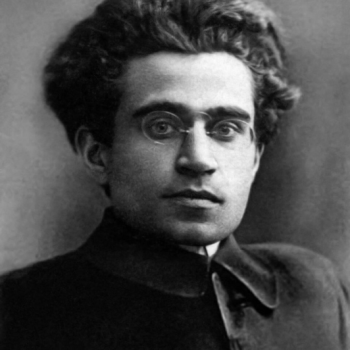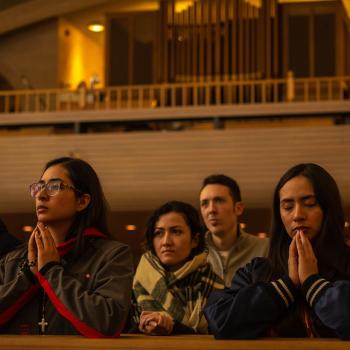 Churches were told to make adjustments for Generation X. Lately, new adjustments had to be made for the Millennials. Now we must deal with Generation Z. This is being described as the first “post-Christian” generation.
Churches were told to make adjustments for Generation X. Lately, new adjustments had to be made for the Millennials. Now we must deal with Generation Z. This is being described as the first “post-Christian” generation.
Generation Z is defined as those born between 1999 and 2015. That means that the label applies to young people today between the ages of three and nineteen. So we are talking about children and teenagers today, who will grow up to be the next cohort of adults.
Kate Shellnutt has written an article on Generation Z for Christianity Today. She draws on several studies of the religious beliefs and attitudes of Generation Z.
Now I don’t know how you measure the ideas of three-year-olds, so these studies concentrate on teenagers, those between 13 and 18, though that’s a small slice, only a third, of the entire “generation.” But the findings will prove sobering for Christian parents and pastors ministering to youth.
Research shows that only 4.1% of Americans describe themselves as falling in the LGBT categories. The percentage of millennials is 7.3%. The percentage of Generation Z who say they are something other than heterosexual is 12%. The percentage that defines themselves as bisexual is 7%.
These are teenagers, as young as 13, whose identities are still in flux and who are too young to be sexualized. But consider these statistics.
Generation Z has three times the rate of LGBT orientations than the rest of Americans? Millennials have nearly twice as many, and then Generation Z has twice the rate as Millennials! How can that be, if homosexuality is genetic, as is often claimed, if being LGBT is because one was “born that way”? What has happened to increase this particular genetic mutation? Or could it be that there is a cultural component to these sexual identities? How else to explain how the numbers of people with this orientation have shot up as LGBT first became socially accepted, and then socially approved?
Actually, when you subtract the number of those who identify as bisexuals (7%), the number of LGT individuals falls down to 5%, which is only slightly higher than the LGBT for Americans as a whole (4%), though that includes bisexuals as well. At any rate, most of the LGBT identity for Generation Z teenagers is being bisexual, which reflects the still-developing sexuality of adolescents. Also, bisexuals can still pursue and be held accountable to the Biblical standard of heterosexual relationships.
In other depressing findings, 13% of Generation Z teenagers between 13 and 18 consider themselves to be atheists. That’s over twice the rate for adults (6%).
To be sure, 59% call themselves Christians, compared to 68% of adults. But only 1 in 11 teenagers is what the researchers define as an “engaged Christian,” someone whose faith shapes what they believe and how they act.
One out of five Generation Z teens believe that Christianity is negative and judgmental. Of the barriers to belief, 29% cite the problem of evil; 23% cite the hypocrisy of Christians; and 20% cite the conflict between science and the Bible.
As for their values, the article quotes Pastor James Emery White, who has written on ministry to today’s teenagers: “Members of Generation Z hold few things dearer than acceptance and inclusivity. They view many moral stances, such as opposing gay marriage, as social stances in line with racism. To them, acceptance means affirmation.”
Also they love social media and technology. Well over half (57%) are on their devices for four or more hours per day. More than a quarter (26%) are on them for eight hours.
Perhaps some of these other beliefs are related to the social media mindset, which reinforces the adolescent’s yearning for acceptance–often by tormenting them with their lack of acceptance and exerting pressure to conform to fashions and groupthink.
And the picture of adolescents airily dismissing the spiritual insights of centuries is a testimony to the shallowness of much of American education, which is often little more than politically-correct propaganda and indoctrination.
But before anyone gets too alarmed over these findings, remember that life changes people. And adolescents grow up.
Finally, as we await the emergence of an even newer generation, already being born–beginning with those born in 2016–we must wonder what they will be like. But, first, what will we call them? Why did we start with Generation X? “Millennials” avoided the label “Generation Y,” by virtue of bridging the centuries. But we are already at “Generation Z.” Why didn’t we start with “Generation A,” which would have given us terms for 26 generations? Will we cycle back to A?
We can’t think that Generation Z will be the last generation. The denizens of the next cohort are already in their terrible two’s. I want to know what they think.
Illustration by geralt via Pixabay, CC0, Creative Commons

















